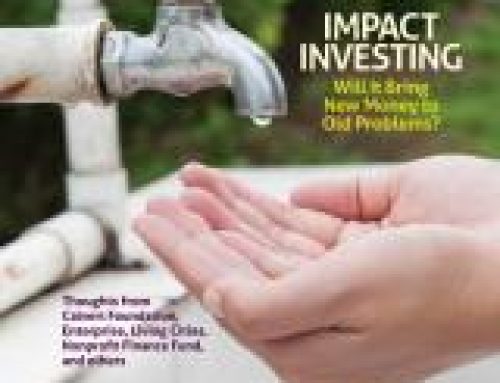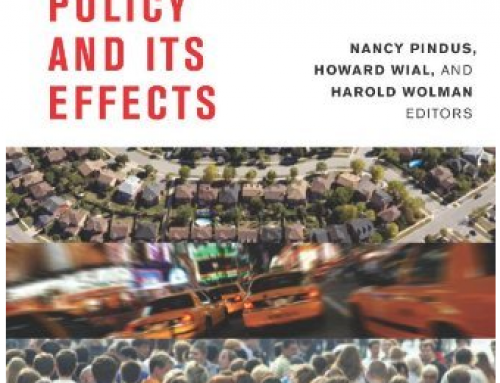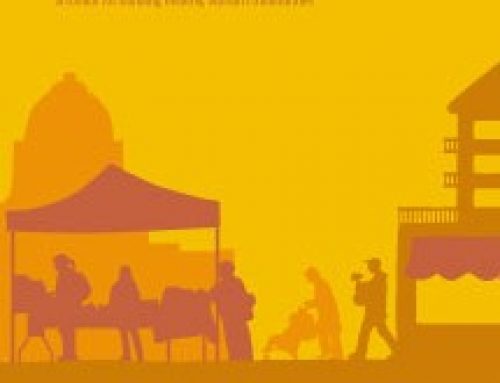Mayor Newsom Announces Neighborhood Marketplace Initiative
Unique program targets public, private resources
to strengthen neighborhood business districts
May 23, 2005
SAN FRANCISCO – Speaking at a national conference on urban commercial district revitalization held in San Francisco today, Mayor Newsom announced a new program to bolster neighborhood business districts – the Neighborhood Marketplace Initiative. The initiative is a public-private partnership between the City of San Francisco, the nonprofit Local Initiatives Support Corporation (LISC), and private corporate and philanthropic donors. Coordinated by LISC and the City, the Neighborhood Marketplace Initiative (NMI) represents a major step forward in efforts to strengthen the city’s neighborhood business districts.
The City and LISC are backing the Neighborhood Marketplace Initiative to improve job creation, investment and the physical landscapes in San Francisco’s neighborhoods. Piloted recently in the city’s Excelsior district with tremendous results and modeled on similar LISC-supported programs around the country, the Neighborhood Marketplace Initiative brings together business, resident, and other civic leaders in selected neighborhoods to develop and implement business district improvement strategies. Across the country similar programs have proven effective at reducing storefront vacancies, bringing in new businesses and jobs, and stimulating community involvement.
“What makes this program unique, and why we are excited about it,” said Mayor Newsom, “is that we have city departments, LISC, and local funders coordinating work and dollars to assist our neighborhood business districts — and to assist the districts based upon what the residents and merchants say they need and want. It is a public-private partnership that is do-able and proven successful. It is exactly the kind of collaborative, targeted approach we need to help our neighborhoods and local businesses.”
Under the Neighborhood Marketplace Initiative, the City and LISC jointly plan to invest approximately $500,000 annually to support neighborhoods selected for the program. Private funders play a pivotal role; approximately half of this investment is provided through donations to LISC from the State Farm Insurance Companies and the Evelyn & Walter Haas, Jr. Fund, among other funders. In addition, LISC is targeting an additional $25 million in flexible loan dollars ($10 million) and other financing ($15 million) for viable and desired development projects in neighborhoods selected to participate in the initiative.
Five neighborhoods have been selected to receive initiative assistance as part of the program’s launch. The Excelsior and Visitacion Valley will receive assistance in implementing comprehensive commercial corridor plans while Third Street in the Bayview, San Bruno Avenue in the Portola neighborhood, and Ocean Avenue in the OMI (Ocean-Merced-Ingelside) neighborhood will all receive assistance in developing a comprehensive strategy and beginning implementation. The targeted neighborhoods will benefit from coordinated services from several city agencies. For example, some of the neighborhoods will receive priority for façade improvement grants through SF Shines, a program of the Mayor’s Office of Community Development as well as support from the Mayor’s office of Economic and Workforce Development in working with property owners, developers and retailers to fill vacant retail properties.
Some of the targeted neighborhoods will also receive help in forming community benefit districts (CBD). Similar to a Business Improvement District, a CBD is formed when property owners in a proposed district voluntarily agree to a special assessment in addition to their regular property taxes, in order to finance capital improvements and services over and above those already provided by the City.
“Because the City, LISC and other funders are working together to support these neighborhoods, we are not only using existing resources more effectively but we hope to engage more local corporate and philanthropic institutions in helping our neighborhoods”, said Stephanie Forbes, Director of LISC’s Bay Area program. “With this partnership, we now have the infrastructure for a new era of neighborhood change based upon residents and merchants working together on the ground, and the local funders and the City working together to support their visions. We can’t afford to work separately anymore.”
The Mayor’s announcement was made at the opening session of a conference bringing together more than 400 neighborhood revitalization practitioners from around the country. Urban Forum 2005, the third such conference hosted by LISC’s Center for Commercial Revitalization, will include several workshops and presentations, with a special focus on successful efforts to help communities revitalize commercial corridors. The conference is being held today and tomorrow at the Bill Graham Civic Auditorium.
LISC is a 25 year-old national nonprofit community development support organization that provides program models, policy analysis, training, technical assistance and financing to help community-based organizations working on behalf of our nation’s lower income families and neighborhoods. LISC works in 33 urban areas around the country and operates a rural program in 66 rural areas. LISC is the largest nonprofit community development financial institution in the country. Bay Area LISC has supported the region’s affordable housing and community development work since 1981.
####



